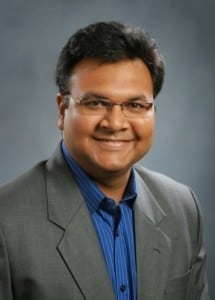About this Webinar:
As we design technologies, field-test and refine them, before ultimately commercializing them in developing communities, how can we share the fruits of our labor with others? How can we build a strong and valid knowledge base that allows us to make informed design decisions for our projects? Prior to that even, how do we engage the communities we are working with in a structured information gathering process? How can we identify needs together? Finally, how can we leverage gathered information to make designs able to solve a problem, sustain and scale.
When individuals conduct participatory research alongside humanitarian engineering and entrepreneurship projects they can uncover and emphasize a community’s self-determined needs, resources and aspirations and use them to build sustainable technology ventures. The findings of such research initiatives can lead to better designs and systemic solutions while simultaneously, the research process can help build trust and ownership amongst the stakeholders and facilitate the implementation of the solution. This research and subsequent design/implementation efforts can lead to publications in refereed journals and conference proceedings which serve as tangible academic outputs while advancing the cumulative knowledge in the field. This knowledge can then help other innovators and communities solve similar problems.
In essence, research and publications are avenues for strengthening social ventures, seeking funding, satisfying tenure committees and building a rigorous, vibrant, and respected global communities of engaged scholars. However, there are several barriers to conducting research in developing communities and sharing the knowledge gained from such endeavors. Institutional Review Board (IRB) protocols, data triangulation problems, lack of graduate student funding and limited publication forums are just a few challenges facing students, faculty and practitioners alike in their quest for disseminating knowledge through scholarly channels.
Presenter:
Dr. Khanjan Mehta
Khanjan Mehta is the Founding Director of the Humanitarian Engineering and Social Entrepreneurship (HESE) Program at Penn State University. His professional interests include innovative system integration, high-tech entrepreneurship and international social entrepreneurship. Mehta loves connecting concepts, people, computers and devices. A basic philosophy behind his work is the convergence of disciplines, concepts, cultures, and countries to create a freer, friendlier, fairer and more sustainable planet.
HESE challenges students and faculty from across campus to break down the barriers between their disciplines and truly collaborate to develop technology-based solutions to address compelling problems facing resource-constrained communities. The objective is to develop transformative social innovations and scalable business models to transform these technology solutions into sustainable and scalable ventures that enable and accelerate positive social change. Students in the HESE Program have led social ventures in Kenya, Tanzania, India, China and other countries. These ventures range from telemedicine systems to low-cost greenhouses, windmills, solar dryers, cell phone based social networking systems, innovative science education programs and knowledge sharing platforms for self-employed women.
The HESE program was the recipient of the 2011 Outstanding Specialty Entrepreneurship Program Award from the US Association for Small Business and Entrepreneurship (USASBE) and was named by Popular Mechanics as one of thirty “Awesome College Labs” across America. Mehta has authored over 40 HESE-related publications with a comparable number in the pipeline. Mehta holds a MS in Electrical Engineering from Penn State and a BE in Electronics Engineering from the University of Mumbai, India. He has traveled extensively across thirty eight countries and speaks seven languages.
What attendees had to say about this webinar:
“Very easy to follow and listen to… Issues for colleges and universities as to undergraduate and graduate research should not be limited to this audience!”
“This is such an important topic that is not discussed enough, so I appreciate that E4C is bringing this to people’s attention.”
“Practical, brief and useful.”
“The feeling that if I want to go into this field as an engineer, I don’t have to be a trailblazer. It is empowering.”

